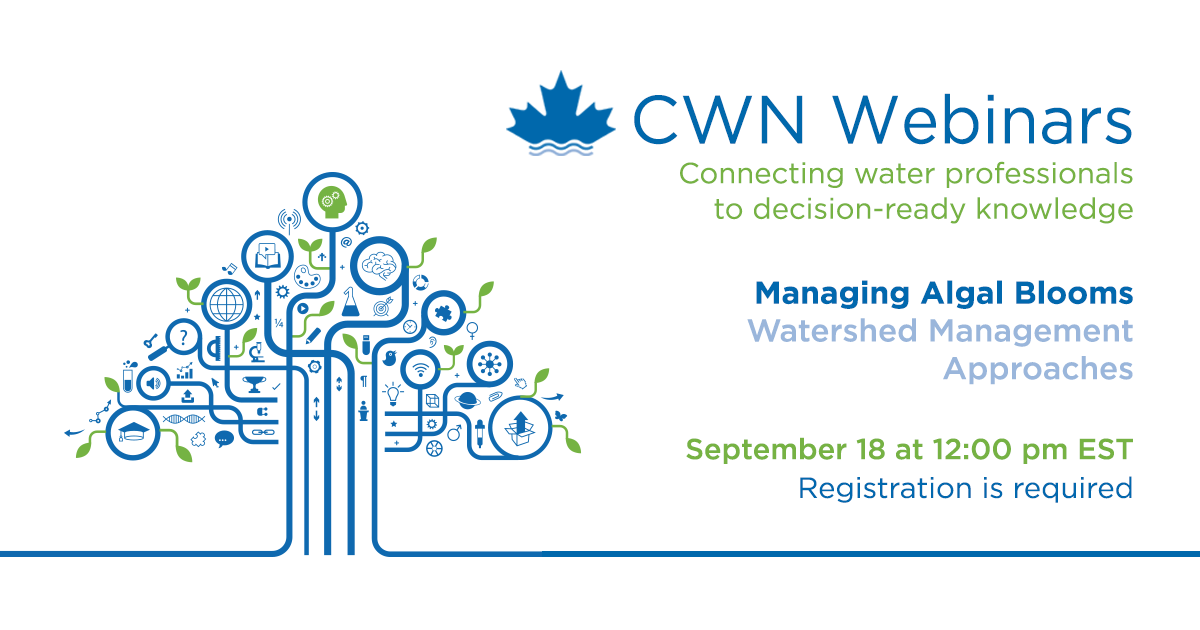

Managing Algal Blooms in Drinking Water using Watershed-Scale Approaches
septembre 18, 2019 @ 12:00 pm - 1:15 pm
This webinar is part of a series; the subsequent webinar (October 2019) will focus on managing the impacts of algal blooms at drinking water treatment plants.
Harmful and nuisance algal blooms are a recurring issue for municipalities across Canada, and their severity, frequency and distribution are increasing. Human activities such as urbanization and agriculture, as well as changes in climate like warmer water temperatures and more intense rainfall are contributing to algae proliferation. Due to the complex interaction of factors which determine whether algal blooms occur, and their severity and frequency, a holistic management approach is needed to minimize their impacts.
This two-part webinar series will look at potential solutions for the strategic management of algal bloom impacts on local water sources in a range of watershed landscapes. Join us to learn how some leading municipalities and academics in Canada are approaching this challenge. The first webinar (September 2019) will focus on reducing and minimizing algal blooms in drinking water sources using watershed management approaches. The subsequent webinar (October 2019) will focus on managing the impacts of algal blooms in drinking water treatment plants.
About the speakers
Nandita Basu is an Associate Professor in the Department of Civil and Environmental Engineering at the University of Waterloo. Her research focuses on nutrient pollution and algal blooms from agricultural intensification, urbanization and shoreline development. She uses tools from environmental science, engineering and the social sciences to better understand how the way we use our land affects the quality of our waters and developing strategies to improve the health of our ecosystems. Nandita currently leads a $1.7M project on Lake Futures where she brings together natural and social scientists with regulatory agencies and conservation authorities to address water quality questions in the Great lakes watersheds.
Wendy Krkosek P.Eng., is the Water Quality Manager at Halifax Water, where she works with treatment, water quality and distribution operations staff to conduct water quality research, solve water quality and treatment problems, improve treatment methodologies, and develop and implement water quality plans. Wendy received her BASc in Civil (Environmental) Engineering from the University of Waterloo, followed by a PhD in Civil Engineering at Dalhousie University. She worked as a Research Engineer in the Centre for Water Resources Studies at Dalhousie University prior to joining Halifax Water.
Monica Emelko is a Professor in the Department of Civil and Environmental Engineering at the University of Waterloo, where she is also the Director of the Water Science, Technology & Policy Group. Monica is also the Scientific Director of forWater, a Natural Sciences and Engineering Research Council network for forested drinking water source protection technologies.
Who should attend this webinar?
Utility managers, knowledge and solution providers, government regulators.
Please register to attend this complimentary webinar; space is limited.

